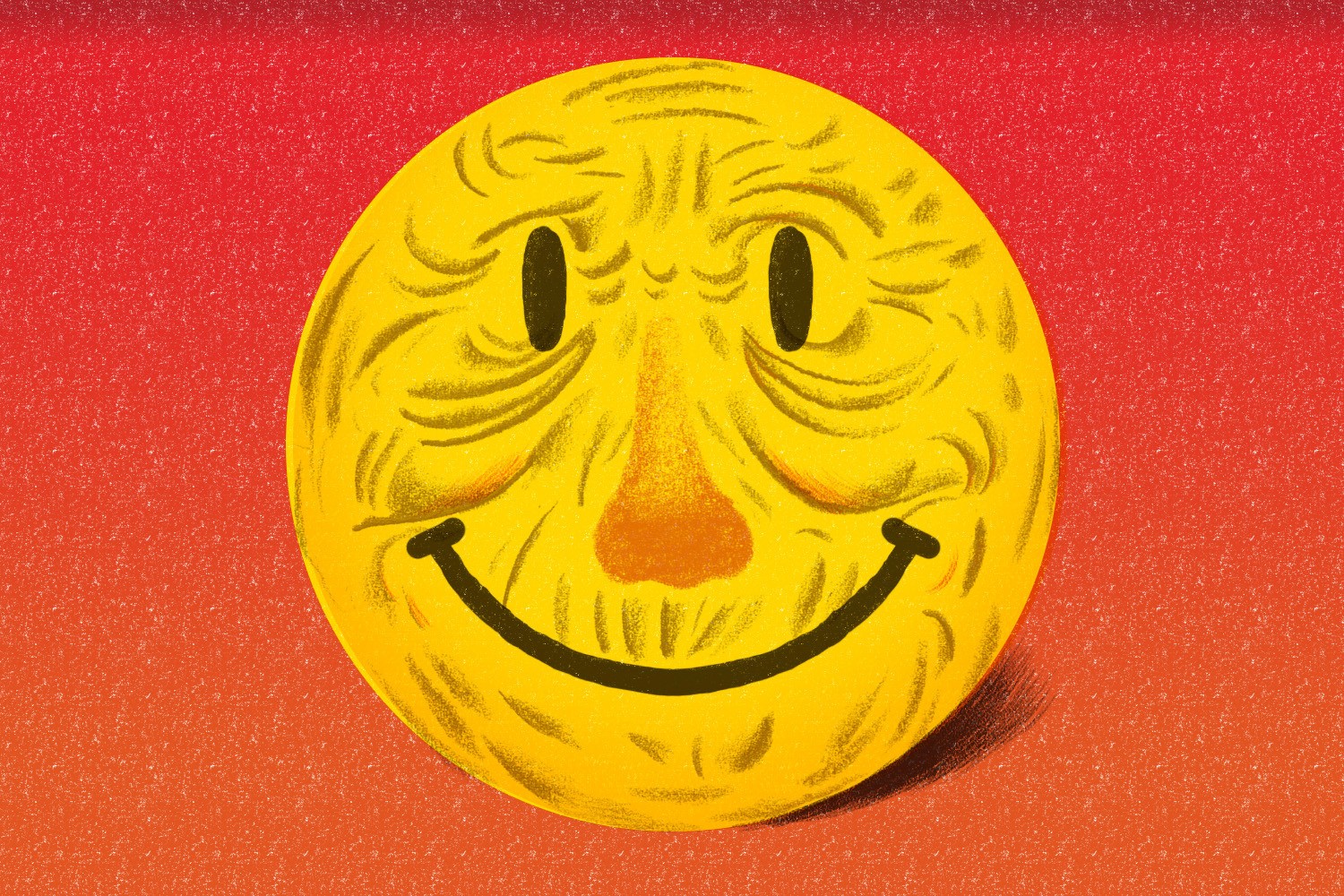 Unlike everyone else or like someone else, I like to depend on myself for my health care. I am faithful in homeopathy. It doesn’t mean I won’t be stepping into the medical world. It just means that as long as I can handle things on my own, I would have to rely on myself unless I broke something inside or outside my body. Not that I consider homeopathy as an all-cure, but it’s one step my colleagues and I can attest to that made a change in our professional and personal lives. My Father for example was the 15th of the 17 children. Everyone in his family died before the age of 76 except his two of his siblings and his parents.
Unlike everyone else or like someone else, I like to depend on myself for my health care. I am faithful in homeopathy. It doesn’t mean I won’t be stepping into the medical world. It just means that as long as I can handle things on my own, I would have to rely on myself unless I broke something inside or outside my body. Not that I consider homeopathy as an all-cure, but it’s one step my colleagues and I can attest to that made a change in our professional and personal lives. My Father for example was the 15th of the 17 children. Everyone in his family died before the age of 76 except his two of his siblings and his parents.
My father and I have successfully kept him from taking heart medications over the past few years. He will be turning 87 in a few months and it’s been good so far. My father had been suffering from tachycardia (rapid heart beat) for months before he had two myocardial infarctions. The first one was when he was 62 and his cholesterol was 112. For years he’d follow his doctors’ orders: the lowfat diet, daily aspirin, Lipitor, nitroglycerin, calcium channel and beta blockers, and two more blood pressure medicines. My dad never missed a medicine nor an appointment. But his doctors did, one by one. His doctors missed out on him every 15 years in a total of 6 cardiologist. If these doctors have been taking the medicines they prescribe to their patients, then most likely their advice would be erroneous and worse, deadly.
Two years after his first infarction my father suffered another attack and more drugs were added to his treatment protocol. But just before the last cardiologist died, he warned our family that if my father did not undergo bypass heart surgery, he’d not make it to his next birthday.
The doctor suggested he go on a bypass surgery that consisted of what sounds like the construction of a skyscraper. I finally suggested to my dad to forgo the surgery. And thank goodness he listened. And so I suggested instead on another course: homeopathy.
It took time to persuade him to rely completely upon the homeopathic methods as well as a modified WAPF-styled diet [Weston A. Price], which turned out to be both a safe choice and a triumphant one. If you knew my father you’d understand that he doesn’t move quickly to alter dietary habits, so this remains a work in progress. We began with butter first, then coconut oil. Today he makes dinner for himself and my mother with these two saturated fats in every meal and he makes his own raw milk yogurt on a weekly basis. I must confide that getting him off commercial bread was a trial only a devoted daughter could endure. As for the drugs, the aspirin was the first to go. No persuasion was needed, since it had caused him gastrointestinal burning that he had simply put up with
Early on, during the period of physician-directed choices, and unaware that his doctor knew nothing of homeopathy, my father asked his MD’s opinion on using Arnica montana in place of aspirin. The doctor sniffed, “You can’t use those methods without taking risks. What are you hoping to accomplish? I take aspirin daily myself.” That doctor died five years later. It’s a little hard not to be smug. And so, it wasn’t long before we made a conscious decision to leave the conventional doctors out of our loop. It only caused undue stress on my father to argue with someone who had no understanding of drug-free methods, nor of proper nutrient-dense diets. Instead, my father simply began taking Arnica montana 6x twice daily and within several months he was done with aspirin.
Ever since my father started taking these, he no longer bleeds as heavily as before. This is comforting, since a more sobering injury or surgery could have possibly lead to hemorrhage. Every day, he no longer grumbles of chronic burning stomach, indigestion and constipation. Gone were ecchymosis, euphemistically called black and blue spots. Another disheartening symptom my father experienced through the years was angina. Walking to the mailbox left him in an anguished state because of pain and breathlessness.
Arnica montana brought this complaint down to a mild purr, but Magnesium phosphoricum (Mag phos) 6x settled it completely. Instead of keeping nitro-glycerin in his shirt pocket, he tucked in a small bottle of Mag phos 6x and popped a few pills into his mouth as needed. After a few months, the need for this remedy was eradicated and Dad stopped carrying it with him. Mag phos 6x cured his angina. However, there still remained his cardiac dysrhythmia (irregular heart beat). His cardiologist, the one who died first, told him that dysrhythmia often ushers in cardiac arrest and is incurable. Naturally this symptom therefore carried the greatest fear factor for my father. Digitalis 30c became our remedy of choice, and this too can be used daily for many months, or years if need be. However, the dysrhythmia is likely to resolve in a much shorter amount of time if this powerhouse of a remedy is employed. Dr. A.L. Blackwood in Diseases of the Heart says of homeopathic Digitalis: “It not only relieves the palpitation but also diminishes and arrests the nightly emissions that so frequently accompany it.”Digitalis has a place even in conventional medical settings, but in that arena it is used in gross form. Unfortunately, as with aspirin, when a substance is used in material structure (as opposed to homeopathic dilution) it frequently causes side effects. In fact, the more “effective” a drug is in suppressing symptoms, the more likely it is to cause damaging side effects. In the original, gross form before it is made into a homeopathic remedy, Digitalis is a poisonous plant, the foxglove. Poisonous substances ultimately make the best homeopathic remedies, because when highly diluted and potentized, they become powerful medicines. The drug industry uses the original plant to formulate a synthetic version in the manufacture of the prescription drug called Digoxin. The difference between this synthetic version and the homeopathic is like the difference between aspartame and raw honey. For arterial sclerosis, we count on Arnica montana, but another remedy is required to be certain that blockage is not imminent: Secale cornutum (ergot). In his Desktop Guide to Homeopathy, Dr. Roger Morrison points out the following: “Secale cornutum acts mainly on the circulation. Allopathically, ergotamines are used for their (primary) vasoconstrictive properties; homeopathically, Secale is used for circulatory imbalances.” In my father’s case, we also occasionally counted on Aurum metallicum 200, which is especially valuable when heart disease is accompanied by depression. This remedy has a reputation for resolving the cardiac event as well as depression. [Editor's note: Aurum metallicum is also indicated for broken-heart syndrome! Or for when someone has poured “their heart” into something only to lose it.
I also added Crataegus oxyacantha (hawthorn) in the tincture, as part of his daily procedure. It has a history of adressing hypertension and most important, as per Concordant Materia Medica, “[has] a solvent capabilities upon crustaceous and calcareous accumulations in arteries. Tincture, one to fifteen drops; must be used for some time in order to acquire good results.”
Consider the Unconsidered
Many times did my father hear that the only way to treat heart disease was to undergo surgery, take lifetime supply of medicines and abstain from eating fatty foods. Doctors would insist on these options and tell you that there is no way else than this.
For some people, lowered expectations are the least sensible reaction. It’s only rational if we wish to give control of our lives to the views of others. When it comes to or long time diseases, modern medicine can be undependable and they can be outwitted with intelligent alternatives.
Side Bars
Schedule of Remedies
It would be irresponsible of me to suggest that the protocol I devised for my father is indicated for everyone suffering from heart conditions, so this is where I must state that each cardiac case presents different settings, hence somewhat diverse remedies. Cardiac homeopathic choices are numerous, and I didn’t come to the following schedule without trials of other remedy considerations over time. Since I know I’ll be receiving emails and calls on precisely what we used, below is the schedule on which I’ve settled for the last many years.
While items one through four below have been included in my dad’s schedule for years, items five through seven have been adjusted according to symptoms as they presented. I might add that the longer my father has been on this plan, the more infrequently certain remedies are needed. In spite of his age, he grows towards more vigorous health. This is not something you hear in conventional medical arenas, which routinely blame the patient’s age for the lack of response.
1. Arnica montana 3 or 6x, twice daily
2. Magnesium phosphoricum 6x, twice daily
3. Crataegus Q, 5 drops, twice daily
4. Secale cornutum 30, twice daily
5. Digitalis 30, twice daily
6. Aurum arsenicum 200, every 30 minutes in an emergency, followed by twice daily for months until the emergent setting clears
7. Arnica montana 200, every 30 minutes alternating with Aurum arsenicum 200 in cardiac emergency.
Cardiac Benefits of Arnica Montana Versus Aspirin
Arnica montana is one of our leading homeopathic remedies for the heart, particularly in relation to blood and arteries. As Frans Vermeulen states in his Concordant of Materia Medica, Arnica has the ability to resolve the following symptoms: “Angina pectoris, stitches in the heart, pulse feeble and irregular, cardiac dropsy, palpitations after any exertion, pressure under the sternum, anguish, collapse, beats shake the whole body.” Also, “Feeble debilitated patients with impoverished blood. Cardiac dropsy and dyspnoea. Marked effect on the blood, affects the venous system.” The very symptoms my father suffered at the time of his cardiac event are fully covered by Arnica montana.
If we think that we should be personally in charge for our health, and when we be contingent on ourselves we learn that we are stronger, more successful, and take greater pride in ourselves and our work, then we make progressive influences to society. When you help a family member with his disease and treat it, there is intense satisfaction not only in the joy of watching his or her suffering disappear, but in the that feeling of accomplishment at well.
Please read the rest of the article at Naturalblaze.com





Leave a Reply